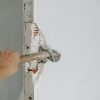
When it comes to buying a home, one of the most crucial decisions you’ll face is choosing the right mortgage. With an array of options available, navigating the world of mortgages can be both exciting and overwhelming. If you’re a resident of Quebec, you may be wondering about the specific types of mortgages that are tailored to the province’s unique financial landscape.
In this blog post, we delve into the topic of mortgages and explore the different types of financing options available to prospective homeowners in Quebec. Whether you’re a first-time buyer looking to enter the housing market or a seasoned homeowner considering a refinance, understanding the various mortgage options will empower you to make informed decisions that align with your financial goals.
The Basics of Mortgages in Quebec
A mortgage is a loan that you take out to purchase a property. The mortgage term refers to the period of time over which you will make payments on your loan. When you make payments on your mortgage, some of that money goes towards paying down the principal (the amount of money you borrowed) and some goes towards interest.
There are different types of mortgages available in Quebec. Closed mortgages have fixed rates for the entire length of the mortgage term and can’t be paid off early without penalties. Open mortgages have variable rates and can be paid off early without penalty. Mortgage brokers can help you find the right type of mortgage for your needs.
In addition to choosing between closed and open mortgages, you’ll also need to decide whether to get a fixed-rate or variable-rate mortgage. With a fixed-rate mortgage, your interest rate stays the same throughout your entire mortgage term. With a variable-rate mortgage, your interest rate can go up or down depending on real estate market conditions.
Fixed-Rate Mortgages Explained
A fixed-rate mortgage provides stability as your interest rate remains the same throughout the life of the loan. Fixed-rate mortgages are one of the most popular types of mortgages available in Quebec. Closed mortgage rates are similar to fixed-rate mortgages, but they come with more stringent terms and conditions. Borrowers who opt for closed mortgage rates have less flexibility when it comes to making prepayments or refinancing their loans.
If you’re looking for a long-term solution, a 5-year closed fixed mortgage rate may be right for you. This type of mortgage locks in your interest rate for five years, giving you ample time to pay off your loan without worrying about fluctuating interest rates. Another popular option is a 25-year fixed mortgage, which offers borrowers lower monthly payments compared to shorter-term options like a 15-year or 20-year mortgage.
Pros of Fixed-Rate Mortgages
- Predictable monthly payments remain the same throughout the life of the loan.
- Protection from rising interest rates, which can result in significant savings over time.
- Easier budgeting and financial planning due to the consistent payment amount.
Cons of Fixed-Rate Mortgages
- Higher interest rates than adjustable rate mortgages at the beginning of the loan term.
- More difficult to qualify for due to strict credit requirements.
- Prepayment penalties if you pay off your loan early.
- Less flexibility compared to adjustable-rate mortgages.
- More difficult to remortgage if you need to.
Variable-Rate Mortgages Explained
Unlike fixed-rate mortgages, the interest rate of a variable-rate mortgage can fluctuate throughout the term of your loan. This is because the interest rate is tied to a benchmark index such as the prime lending rate, which can change over time. This means that you may end up paying more or less than what you initially anticipated. However, most mortgage providers offer prepayment privileges that allow you to pay off more of your principal balance without penalty.
Your credit score and financial situation are key factors that determine whether you qualify for a variable interest rate mortgage and the terms of your loan agreement. Overall, if you’re comfortable with some potential variability in your monthly payments and want to take advantage of potentially lower Canadian mortgage rates, then an adjustable-rate mortgage might be worth considering. Just make sure to do your research and work with a trusted mortgage loan provider who can guide you through the process.
Pros of Variable-Rate Mortgages
- Variable-rate mortgages often have lower initial interest rates.
- Borrowers may be able to take advantage of decreasing interest rates over time.
- There may be greater flexibility in terms of prepayment options.
- Variable-rate mortgages can be a good option for borrowers who don’t plan on staying in their homes for a long period of time.
Cons of Variable-Rate Mortgages
- Variable-rate mortgages can be unpredictable and may result in fluctuating monthly payments.
- It can be difficult to budget and plan for future mortgage payments with a variable-rate mortgage.
- Variable-rate mortgages may not be suitable for those who prefer stability and consistency in their finances.
Other Mortgage Types to Consider
You should consider your unique financial situation and preferences when exploring mortgage options beyond fixed-rate and variable mortgages. Quebec has different types of mortgages that cater to different needs. Before you make a decision, it’s best to do your research and understand the pros and cons of each type.
A reverse mortgage is a loan that lets you access money from your home equity without selling your home. Repayment is only required when you move out, sell the house, or the last borrower passes away. With a reverse mortgage, you don’t have to make any payments until the loan is due. The longer you go without making payments, the more interest you will owe on the reverse mortgage. By the end of the loan term, you may have less equity in your home.
With a high-ratio mortgage, you can buy a home with only a 5% down payment. This type of mortgage is for more than 80% of the home’s value. If your down payment is less than 20% when purchasing a home, your mortgage will be classified as high-ratio.
A collateral mortgage is used when a borrower applies for a mortgage that exceeds the home’s purchase price. The borrower receives extra funds from the mortgage lender to use in the future. Collateral mortgages are like home equity lines of credit that are approved at the same time as the original mortgage. They offer a convenient way to generate cash without needing additional approval.
Overall, choosing the right type of mortgage depends on your individual financial circumstances and goals for homeownership. It’s best to onsult with professionals such as lenders to determine which option is best suited for you before making any decisions.
How Are Mortgages Calculated?
Mortgages are calculated using various factors to ensure lenders provide a product that meets the borrower’s needs while still protecting their own interests. The mortgage amount is the amount of money borrowed from a lender and is typically used to purchase a home or other real estate property.
This includes the purchase price of the property, minus any down payments or deposits made, as well as any applicable loan insurance that may be required. The initial mortgage will be calculated by considering factors such as your credit score, annual income, existing debts, and the downpayment you put on the home.
The loan insurance requirement usually applies when the borrower puts down less than 20% of the purchase price, which many lenders require in order to issue a mortgage loan. Depending on individual circumstances, lenders may also ask for additional documentation such as an appraisal report or credit history check before approving a mortgage application. Upon approval, borrowers can move ahead with finalizing their mortgage plans and obtaining funds for their purchase.
How to Choose the Right Mortgage for You
To select the ideal mortgage for your specific financial circumstances and goals, it’s necessary to consult with professionals such as brokers or lenders. These experts can guide you through the maze of mortgages available in Quebec and help you choose one that suits your needs. To give you a starting point for your research, here are some things that you should consider when trying to find the right mortgage contract.
Deposit
To determine the available mortgage products and rates, the amount of deposit you have to put down is important. Higher deposits usually qualify for the most competitive rates. First-time buyers typically need a deposit of 5-10%. However, there are mortgages that offer a higher percentage of the property’s value. When remortgaging, there is usually more choice due to increased property equity.
Interest Rates
The interest rate is important to consider. It affects your regular payments and the total interest you pay over the mortgage term. Interest rates are beginning to rise so finding competitive mortgage rates is essential if you want to get the best deal in today’s expensive market. Even a small difference in interest rate can make a big impact on the full length of your mortgage.
Additional Fees
Mortgages are a big financial commitment and can be costly. However, people often overlook the additional fees that come with getting a new mortgage. These fees can differ greatly among lenders and there may be multiple charges. It’s important to consider the costs of booking, arrangement, and valuation fees when securing your new mortgage. The lowest mortgage rates might not be as they initially seem when you consider the costly fees that accompany them.
Mortgage Length
Lenders offer flexibility in mortgage length to give you control over your finances. You can choose a longer-term contract to make monthly mortgage payments more affordable or a shorter mortgage if you are financially capable of paying it sooner. Some mortgages can last up to 40 years depending on your age and circumstances. Opting for a shorter term means higher monthly payments but less interest paid overall. It’s important to balance your short and long-term budgets. If you’re remortgaging, you can also adjust your term to reflect changes in your situation.
Improve your credit score to keep interest rates down
Get a Private Loan
If you want to get the best possible rate on your mortgage, it is essential that your credit score is as good as possible and you have cleared all existing debts. If you have a bad credit score and an accumulation of debts, your mortgage interest rate will be high, regardless of the type of mortgage you choose. That is why consolidating your debt is essential before you look into securing a traditional mortgage. Refinancement Hypothécaire offers debt consolidation services to help you achieve the lowest rate when securing a mortgage.





